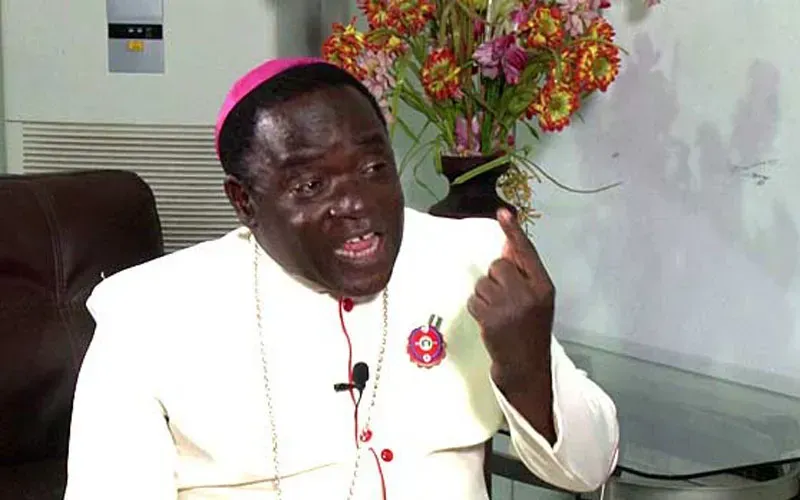“We can come to the same conclusion with a book titled, A World Without Christianity!” the Catholic Church leader who was appointed to the Vatican Dicastery for Promoting Integral Human Development in January 2021 said.
“The people of Somalia have only one single ethnic group and they speak one language, but who wants to go and live in Somalia today?” he posed, and explained, “We must therefore find other reasons for conflict in our society. We must look elsewhere if we are really and truly looking for how to build a good society and how to live in peace with one another.”
“Our hatred and violence against one another does not have much to do with Religion, Ethnicity, or even region. It has to do with how politicians handle identities, how they manage the concepts of fairness and justice,” Bishop Kukah asserted.
He noted that some communities in Nigeria that do not have roads, water, jobs, and other amenities may feel deprived.
Others are those who feel that they have no representation at the highest levels of government, the Nigerian Bishop known for good governance advocacy said.
(Story continues below)
He noted that where there is a threshold of deprivation, people are more likely to react violently if they feel that the reason why they do not have something is because others have it.
In a similar way, he went on to say, Christians have been upset by the administration of President Muhammadu Buhari because of the “skewed” nature of his appointments and how these appointments are perceived to have favored Northern Muslims.
Bishop Kukah underscored the need to better manage the different religious, economic, and social groups in Nigeria, saying, “I call on our politicians to develop the required skills for managing diversity because its mismanagement is killing our country.”
“We will never be good Muslims or Christians if we do not embrace, respect, and honor one another and our faiths,” he emphasized.
Lauding organizers of the December 1 conference, the Catholic Bishop, however, noted that Nigerians were tired of conferences that do not bear any fruit to end their suffering.
He said, “Today, most Nigerians have become cynical about Conferences, Seminars, Committees, Commissions, and so on because it is generally perceived that these initiatives are largely a distraction from the main problems of our dear country.”
The Catholic Bishop who has been lauded for delivering prophetic messages noted that while some Nigerians believe that governments do not have the political will to follow through with recommendations from conferences, some believe that these initiatives are empty of content and the government often simply wants to be seen doing something or that they want to score political points.
“We can say the same thing about our endless national and international conferences, conversations, and seminars about dialogue and peace. The rituals continue and there is a sense in which we can say Nigeria is a country governed by Conferences and Seminars,” Bishop Kukah said during the December 1 conference in Nigeria’s Kano State.
This story was first published by ACI Africa on 05 December 2022.
Agnes Aineah is a Kenyan journalist with a background in digital and newspaper reporting. She holds a Master of Arts in Digital Journalism from the Aga Khan University, Graduate School of Media and Communications and a Bachelor's Degree in Linguistics, Media and Communications from Kenya's Moi University. Agnes currently serves as a journalist for ACI Africa.








